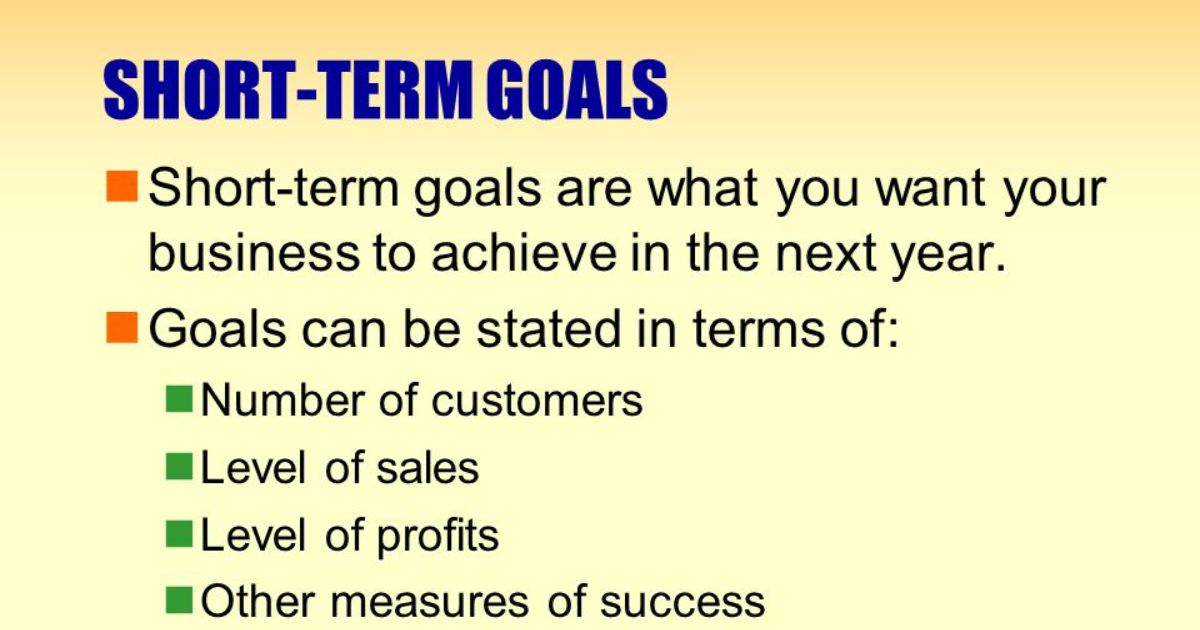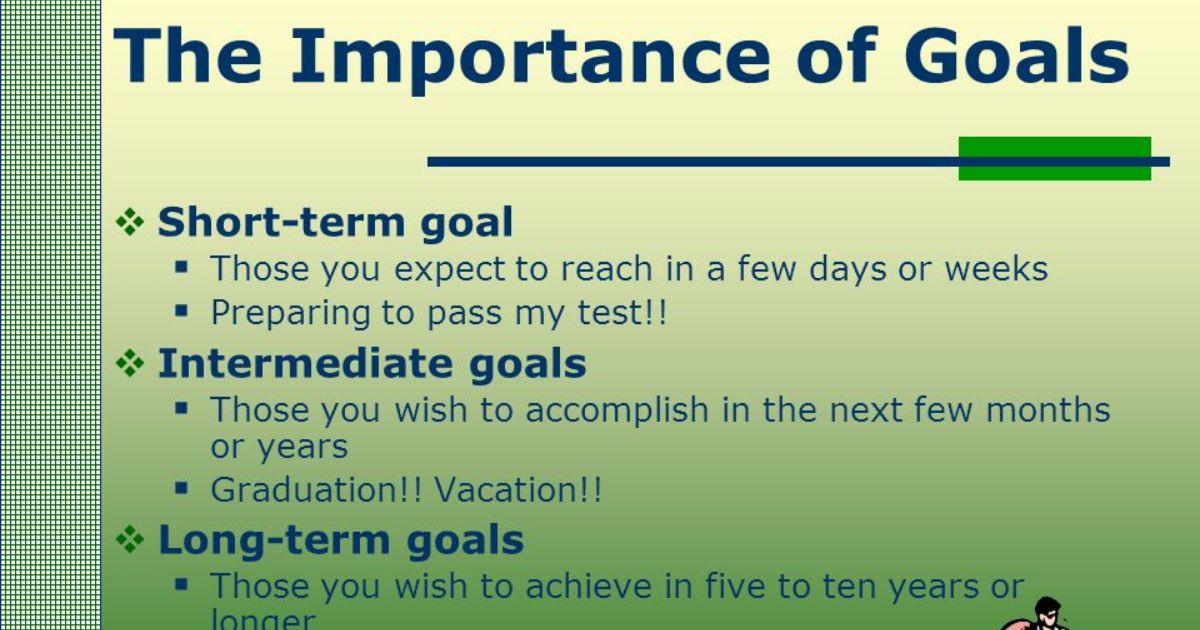Academic goals are specific, measurable objectives students set to achieve desired outcomes in their education, such as earning certain grades, acquiring specific skills, or completing degree requirements. These goals provide direction and motivation, helping students to focus their efforts and manage their time effectively.
Academic goals are the roadmap to a student’s future success, offering clear milestones and a sense of direction in their educational journey. Imagine unlocking the doors to endless opportunities by setting and achieving these goals, transforming dreams into tangible accomplishments. Each academic goal met is a step closer to mastering new skills, gaining profound knowledge, and securing a bright future. The pursuit of these goals not only fosters discipline and determination but also ignites a passion for lifelong learning.
Academic Goals are specific, measurable objectives that students set to achieve significant milestones in their educational journey, such as attaining certain grades, mastering new skills, or completing degree programs. These goals provide clarity and motivation, helping students to prioritize tasks and manage their time effectively. By breaking down larger aspirations into manageable steps, academic goals make the path to success more achievable. They also foster personal growth, resilience, and a sense of accomplishment as each target is met.
The Significance of Short-Term Academic Goals
Cultivating a Growth Mindset
Short-term educational goals function catalysts for cultivating a increase attitude, a mindset that embraces demanding situations as possibilities for gaining knowledge of and improvement. by using setting incremental objectives, we acknowledge that increase is a non-stop method, and every milestone executed paves the manner for further advancement. This mind-set empowers us to technique educational endeavors with resilience, spotting that setbacks are transient and that perseverance is the key to unlocking our proper potential.
Enhancing Focus and Motivation
In the midst of a sea of distractions and competing priorities, quick-term educational dreams act as anchors, keeping us centered and stimulated. those tangible objectives provide us with a experience of course, providing a clear roadmap to follow and milestones to have fun along the way. by breaking down larger, overarching dreams into workable steps, we create a sense of feat with each milestone finished, fueling our motivation and propelling us ahead with renewed energy.
Developing Time Management Skills
The pursuit of short-term instructional goals necessitates effective time management skills. As we try to balance educational commitments with extracurricular activities, personal responsibilities, and self-care, placing practical and attainable goals will become paramount. by way of prioritizing responsibilities and allocating time judiciously, we cultivate invaluable time management capabilities that increase some distance past the academic realm, equipping us with the equipment to navigate the complexities of lifestyles with more performance and organization.
Fostering Accountability and Self-Reflection
Short-time period academic dreams inspire responsibility and self-mirrored image, two essential components of personal boom and educational fulfillment. by putting specific desires and monitoring our progress, we turn out to be acutely privy to our strengths, weaknesses, and areas for improvement. This self-recognition empowers us to take possession of our getting to know journey, making informed selections and adjustments as wanted, in the end propelling us closer to instructional excellence.
Crafting Effective Short-Term Academic Goals
To harness the full power of short-term academic goals, it is crucial to approach their formulation with deliberation and care. Here are some key considerations:
Specificity and Measurability
Effective short-term educational dreams need to be particular and measurable. in preference to vague aspirations like “improving grades” or “studying more,” outline clean and quantifiable objectives, which includes “reaching a B+ or better in advent to records” or “dedicating two hours in line with day to analyzing for the imminent calculus examination.” with the aid of setting unique and measurable desires, we take away ambiguity and create a clean course to fulfillment.
Relevance and Alignment
Ensure that your quick-term academic desires align together with your overarching educational aspirations and lengthy-term targets. these dreams have to serve as stepping stones, guiding you in the direction of your remaining destinations, whether that be excelling in a particular situation vicinity, gaining admission to a prestigious institution, or pursuing a selected profession direction. by using keeping relevance and alignment, you imbue your efforts with reason and path.
Realistic and Achievable
While ambition is admirable, putting unrealistic or overly formidable desires can result in frustration and demotivation. it is crucial to strike a balance among challenging yourself and putting doable objectives. recollect your present day information, skills, and available resources, and set dreams that extend your competencies whilst remaining doable inside the given timeframe.
Timebound and Prioritized
Effective brief-time period instructional dreams have to be time bound, with definitely described deadlines or target dates. This feel of urgency fosters a disciplined method and stops procrastination. moreover, prioritize your dreams primarily based on their importance and impact, making sure that you allocate a while and efforts judiciously.
Flexibility and Adaptability
While goal-sitting is crucial, it’s equally crucial to stay flexible and adaptable. occasions might also change, and unexpected challenges can also get up. Be organized to reevaluate and modify your dreams as wished, ensuring that they remain applicable and aligned along with your evolving instructional adventure.
Read More:
Examining YouTube TV’s Profit Margins
Implementing Short-Term Academic Goals
Once you have crafted your short-term academic goals, it is time to put them into action. Here are some strategies to help you implement and achieve your objectives:
Create a Plan of Action
Develop a comprehensive plan of action that outlines the steps you need to take to attain each purpose. destroy down large dreams into smaller, attainable obligations, and create a timeline or agenda to guide your development. This plan serves as a roadmap, offering structure and duty in the course of your instructional adventure.
Establish a Supportive Environment
Surround yourself with an environment conducive to academic success. This may involve finding a dedicated study space, minimizing distractions, or seeking out peer support groups or study partners. A supportive environment can foster focus, motivation, and a sense of community, all of which contribute to the successful pursuit of your short-term academic goals.
Leverage Effective Study Strategies
Identify and implement study strategies that align with your learning style and the specific goals you have set. For example, if your goal is to improve comprehension in a literature course, consider active reading techniques such as note-taking, summarizing, and reflecting on the material. If your goal is to excel in a mathematics course, practice problem-solving and seek out additional resources or tutoring support as needed.
Seek Feedback and Mentorship
Embrace the power of feedback and mentorship throughout your academic journey. Seek guidance from professors, academic advisors, or more experienced peers who can provide valuable insights, constructive criticism, and support. Their perspectives can help you identify areas for improvement, refine your strategies, and celebrate your achievements along the way.
Celebrate Milestones and Reflect on Progress
As you achieve each short-term academic goal, take the time to celebrate your accomplishments, no matter how small. These moments of recognition and self-affirmation can provide a much-needed boost of motivation and confidence. Additionally, regularly reflect on your progress, acknowledging the growth you have experienced and the lessons learned along the way.
Overcoming Challenges and Staying Motivated
The pursuit of short-term academic goals is not without its challenges. Setbacks, distractions, and moments of demotivation are inevitable. However, by cultivating resilience and employing effective strategies, you can overcome these obstacles and maintain your momentum.
Identify and Address Roadblocks
When faced with challenges, take a step back and objectively assess the roadblocks hindering your progress. Are there knowledge gaps that need to be addressed? Are time management issues impeding your ability to prioritize your goals? By identifying the root causes of these challenges, you can develop targeted solutions and strategies to overcome them.
Seek Support and Encouragement
Surround yourself with a supportive network of peers, mentors, and loved ones who can offer encouragement and motivation when you face challenges. Share your goals and struggles with them, and allow their positive reinforcement to reignite your passion and determination.
Practice Self-Care and Mindfulness
Academic pursuits can be mentally and emotionally taxing. Prioritize self-care by engaging in activities that promote physical and mental well-being, such as exercise, mindfulness practices, or creative pursuits. A balanced approach to life can help you maintain focus, energy, and a positive mindset throughout your academic journey.
Embrace Failure as a Learning Opportunity
Failure is an inevitable part of the learning process, and it is essential to reframe your perspective on setbacks. Rather than viewing them as permanent obstacles, embrace failures as opportunities for growth and learning. Analyze what went wrong, identify areas for improvement, and use these insights to refine your strategies and approaches.
Reassess and Adjust as Needed
Remain flexible and adaptable, recognizing that circumstances may change, and your goals may need to be reevaluated or adjusted. Regularly review your progress, celebrate your accomplishments, and make modifications as necessary to ensure that your short-term academic goals remain relevant and aligned with your overarching objectives.
FAQs
What are short-term academic goals?
Short-term academic goals are specific, achievable targets set to be accomplished within a brief timeframe, typically ranging from a week to a few months.
Why are short-term academic goals important?
Short-term academic goals help maintain focus and motivation by providing immediate objectives that contribute to long-term aspirations..
How can I set effective short-term academic goals?
To set effective short-term academic goals, ensure they are Specific, Measurable, Achievable, Relevant, and Time-bound (SMART).
What are some examples of short-term academic goals?
Examples include completing a research paper within two weeks, studying for an upcoming test for one hour each day, or reading a specific number of chapters from a textbook by the end of the week.
How do I track my progress on short-term academic goals?
Track progress by maintaining a journal or planner, setting reminders, and regularly reviewing your achievements against the set deadlines.
Conclusion
In the relentless pursuit of information and self-actualization, quick-time period academic goals become beacons of hope, illuminating the course in the direction of knowing our truest scholastic aspirations. those incremental goals go beyond mere milestones, serving as catalysts for personal boom, fostering subject, and igniting an insatiable thirst for highbrow exploration. through their strategic implementation, we domesticate resilience, honing our potential to navigate the inevitable demanding situations that accompany any transformative adventure.
In the long run, short-term instructional dreams empower us to liberate the boundless capacity inside, propelling us ever toward the top of educational excellence. include them wholeheartedly, for of their humble stature lies the name of the game to unleashing greatness, one step at a time.

















1 thought on “Short Term Academic Goals”